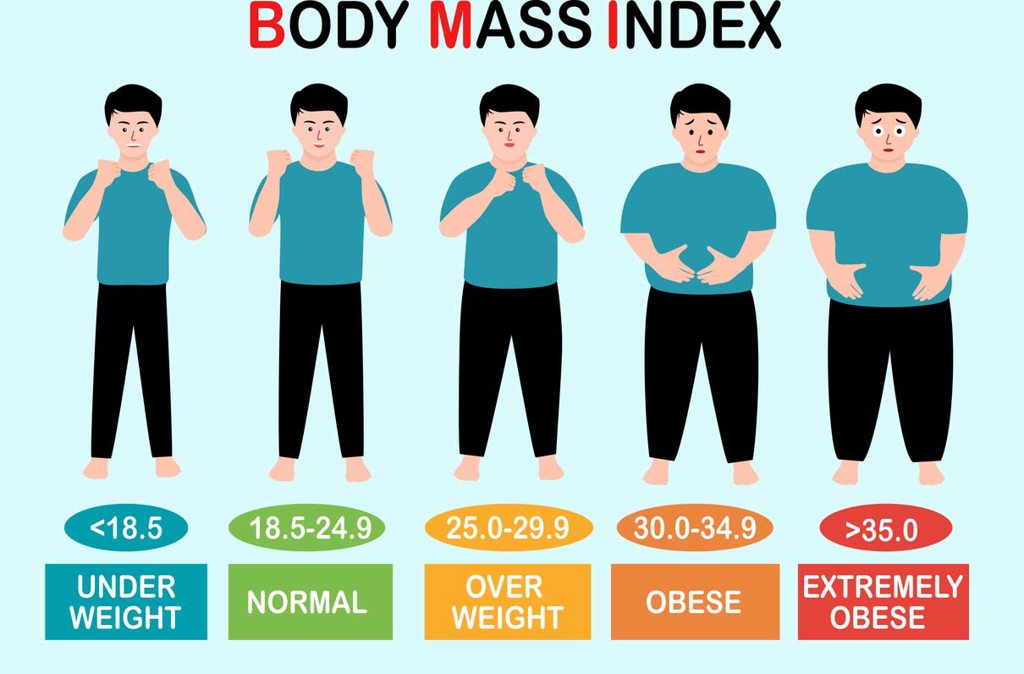Do You Know Your BMI?

According to the National Institutes of Health, nearly one in three adults are overweight, more than two in five adults have obesity and about one in 11 adults have severe obesity. BMI is one way that healthcare providers assess weight, but what does BMI actually mean and how can you calculate yours?
What is BMI?
“Body mass index (BMI) measures the ratio of your height to weight to estimate how much body fat you have,” said Janelle Violago, MD, a board-certified endocrinologist with Penn Highlands Endocrinology. “The higher your BMI, the more body fat you may have. The lower your BMI, the less body fat.”
Dr. Violago continued, “It is important to note, however, that BMI alone does not diagnose health.” “Rather, it is one metric that healthcare providers use, along with other tools and tests, to assess a person’s health status and risks. Genetics, activity level, tobacco or alcohol use and mental health conditions also affect your overall health.”
Why is BMI important?
High body fat may be a contributor to conditions such as heart disease, stroke and Type 2 diabetes, while low body fat may be an indicator of malnutrition. A healthy amount of fat, on the other hand, helps the body absorb vitamins and minerals, maintains body temperature, protects organs and supplies energy.
What is a healthy BMI?
A healthy BMI is considered to be in the range of 18.5 to 24.9. Further, BMI is broken down into the following ranges:
- Underweight: Less than 18.5
- Optimum range: 18.5 to 24.9
- Overweight: 25 to 29.9
- Class I obesity: 30 to 34.9
- Class II obesity: 35 to 39.9
- Class III obesity: More than 40
Healthcare providers do not only use BMI to classify weight. They also consider waist circumference, skin thickness and occasionally DEXA scans, a whole-body scan generally used to measure bone density which can also provide a detailed snapshot of total body composition and fat content.
What does a low or high BMI mean for your health?
BMI can help your healthcare provider assess your risk of developing certain conditions. A BMI below 18.5 may mean a higher risk of developing:
- Anemia
- Infertility
- Malnutrition
- Osteoporosis
- Weakened immune system
A BMI above 24.9, on the other hand, may put you at greater risk for:
- Cancer
- Depression and other mental health conditions
- Gallstones
- Heart disease
- High blood pressure
- Osteoarthritis
- Sleep apnea
- Type 2 diabetes
You can, of course, have any of the health conditions listed above without having a low or high BMI.
How do you measure your BMI?
Here is how to calculate your BMI:
- Weigh yourself (in pounds) and measure your height (in inches)
- Multiply your weight by 703
- Divide that answer by your height (in inches)
- Divide that answer by your height again
For example, a person who weighs 180 pounds and is 5 feet and 5 inches tall (65 inches total) would calculate their BMI by:
- Multiply 180 by 703 for an answer of 126,540
- Divide 126,540 by 65 for an answer of 1,946.769
- Divide 1,946.769 by 65 again for an answer of = 29.95
- Their BMI, therefore, would be 29.9
How can you maintain a healthy BMI?
If you have a low or high BMI, talk to your healthcare provider about the steps you can take to reach a healthy BMI. When you are within a healthy range, these steps can help you maintain a healthy weight:
- Eat a healthy, balanced diet.
- Limit sugary drinks.
- Get enough exercise. The American Heart Association recommends that adults should get at least 150 minutes a week of moderate-intensity and at least 2 days a week of activities that strengthen muscles.
The physicians and providers at Penn Highlands Healthcare can help you maintain a healthy BMI. The health system offers primary care physicians and providers as well as endocrinologists throughout Pennsylvania who provide nutrition therapy and diabetes management and treat endocrine disorders. To find a provider near you, visit www.phhealthcare.org/findadoc.
